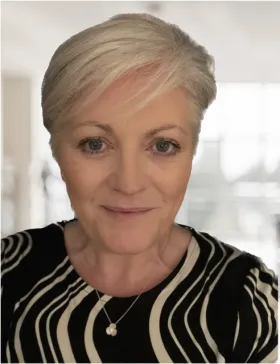In 1948, a vision was brought to life. This vision aimed to provide universal, accessible and comprehensive healthcare services to anyone who needed them, regardless of means. Born into a post-war world where people had made huge sacrifices to protect British freedoms and values, it heralded an era of equality and advancement.
I’m talking, of course, about the NHS, which is celebrating its 75th birthday this month. Over the decades it’s developed to become part of the fabric of our society, and it’s something most of us have relied upon during both the best and worst times of our lives. It’s with us unfailingly and without hesitation from birth to end-of-life. And it supports us through our most personal and difficult moments with practical care. But, just like us, it needs the right care and conditions to flourish.
Quality healthcare for all
Before WW2, the four nations of the UK operated under a mix of private, municipal and charity healthcare operations. By the end of the war, it was becoming painfully obvious that this set-up was providing inadequate care. To replace it, the government opted for a national system, structured around the founding tenant of high-quality, accessible healthcare for all. Over the years, the NHS has grown and developed into the entity we know today. Drawing over £150 billion in funding last year alone, it’s a vast and varied operation that spans routine GP appointments to the latest in cutting edge medical innovation. But regardless of the treatment a person needs, its seven core principles remain the same:
A comprehensive service, available to all
Access to services based on clinical need, not an individual’s ability to pay
An aspiration to the highest standards of excellence and professionalism.
All care and operations are centred around the patient.
A commitment to working across organisational boundaries.
A commitment to providing best value for taxpayers’ money.
Accountability to the public, communities, and patients it serves.
An ever-increasing health and care load
Underpinning these principles, the NHS constitution states that: “The NHS belongs to the people. It is there to improve our health and wellbeing, supporting us to keep mentally and physically well, to get better when we are ill and, when we cannot fully recover, to stay as well as we can to the end of our lives.”
It’s a commitment that demands more from the NHS year-on-year. When the NHS began in 1948, life expectancy was in the mid-60s, whereas today it’s jumped up to be in the 80s. And although on the face of it this is something to be celebrated, within the extra decades we’re living, more and more people are being diagnosed with numerous, long-term health conditions. Around 15 million people in the UK now live with a long-term health condition, including 58% of over 60-year-olds.
Proactive care for our healthcare system
Alongside the NHS’s commitment to us, particularly as we age, it’s important we acknowledge our own responsibility back to the NHS. Put simply, we owe it to ourselves and our healthcare system to be proactive about our own wellbeing and to stay as healthy as possible – protecting the NHS from a crippling workload. A revolution in data can help us to achieve this, with greater insights into our own health and wellbeing than ever before.
And in these efforts, there’s a valuable lesson for the NHS, too – to reach a significant, healthy old age it’s vital to take proactive steps to safeguard its wellbeing. Often, investing in new methods and technologies can help, and my own family’s recent experience of NHS care exemplifies this need. My husband recently spent two weeks in an NHS hospital, where we struggled with clinical communications, outdated systems and hospital equipment that - while perhaps procured in the most cost-effective way - simply didn’t perform to the standard a patient should expect.
More forward-looking decision making would combat these challenges. And would also mean frontline healthcare staff don’t have to spend their days and nights listening to alarms from IV machines that are constantly blocking, or manually transferring patient notes into paper folders, or chasing up information for worried patients and families because there’s no accessible digital system for information storage.
With the right investment in effective digital capabilities, devices and solutions, the NHS can enable staff to view, action, refer and request information immediately. This in turn frees up frontline staff from inefficient administrative processes, enabling them to devote their time to compassionate, high-quality medical care. At the same time, the right technology also contributes to a better working environment and a more positive experience for patients. This commitment will become increasingly important in years to come as an aging population and rising healthcare costs make smart, proactive investments vital to safeguarding the NHS’ future health.
Backing the NHS for decades to come
The observations related to my husband’s care aren’t intended to criticise. My family has been involved with the NHS from its inception - from my grandad’s work as a hospital porter after he returned from the RAF in WW2, to my son’s current work as an Operating Department Practitioner. That’s in addition to the countless times it’s been there to safely bring new family members into the world. In our CGI family of around 6,000 members, we’ve welcomed over 7,500 babies via the NHS and over 4,000 individuals have experienced a stay in hospital for one night or more
We’re all so immensely grateful to the NHS for all the ways it’s supported us. But to remain such a treasured pillar of our society for 75 years to come, it needs to embrace medical technologies and interoperable data that will boost efficiencies and improve future care.
The NHS can and will achieve this. And here at CGI, we’re behind it every step of the way. So, from all of us, thank you and happy 75th birthday.






